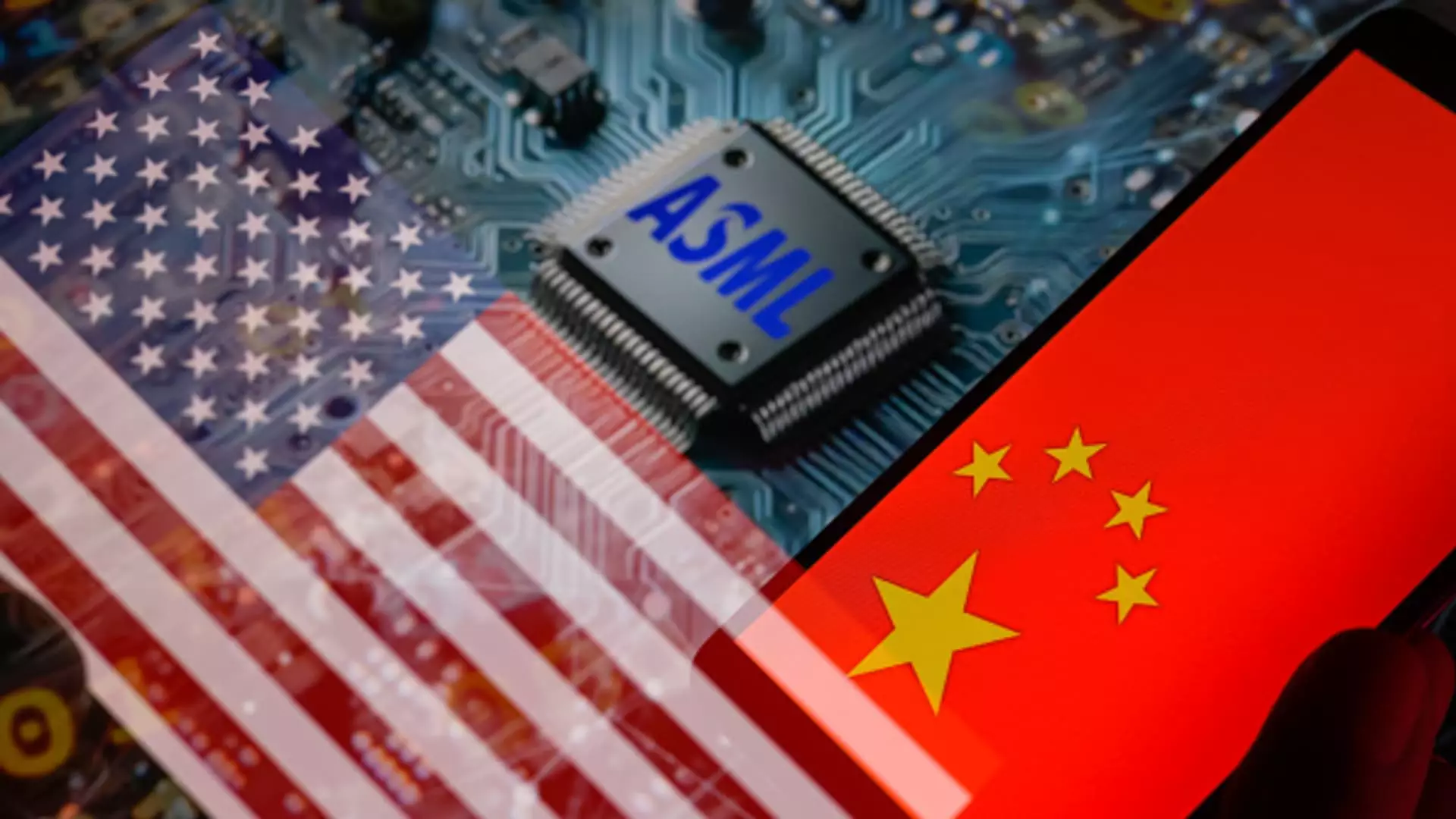On a turbulent Thursday, shares of major semiconductor equipment companies saw a notable uptick, driven largely by developing news surrounding potential U.S. sanctions targeting China’s chip industry. While market participants anxiously awaited further regulatory developments, preliminary reports indicated the measures under consideration by the U.S. could be less stringent than initially anticipated. This news spurred optimism among investors, reflected in the performance of stalwarts like ASML, whose shares rose approximately 3.6% during early trading sessions in Europe, and Tokyo Electron, which experienced an even larger jump of over 6% in Japan.
Reporting from Bloomberg highlighted that the U.S. government is mulling additional restrictions on semiconductor manufacturing equipment, particularly concerning AI memory chips intended for the Chinese market. Notably, the emerging plan seems to pivot away from the more severe sanctions contemplated earlier, which could pose short-term benefits for the semiconductor supply sector. The U.S. Commerce Department has yet to officially respond to these revelations, leaving market players in a state of cautious anticipation.
One significant point of discussion is the potential addition of companies to the export blacklist, known as the Entity List. Given the U.S.-China technology rivalry, these sanctions could dictate the competitive landscape. Interestingly, it was reported that ChangXin Memory Technologies, a key Chinese player vying with giants like SK Hynix and Samsung, would not be blacklisted. This decision could soften the blow to companies like ASML, reducing the anticipated revenue decline from the Chinese market, which Jefferies analysts had previously estimated at around 30% for the upcoming year.
ASML stands at a critical junction in the complex global semiconductor supply chain. Specializing in advanced lithography machines, the Dutch firm plays an indispensable role in the manufacture of cutting-edge semiconductors. However, ASML has found its operations significantly impacted by amplifying trade tensions, most notably in the context of U.S. export controls restricting technology transfers to China. The restrictions have included limitations on the export of even the company’s less sophisticated machines, creating further challenges amid the industry’s already intricate landscape.
Additionally, the company’s clientele, which includes “fabs” like Taiwan Semiconductor Manufacturing Company (TSMC) and China’s SMIC, is at the mercy of these geopolitical dynamics. Rules that would adversely affect semiconductor demand or specifically target manufacturers could trigger a slowdown for ASML and similar foreign entities reliant on semiconductor sales.
While the heightened regulatory environment presents clear challenges, it also offers a silver lining. Reduced restrictions could stimulate more stable demand for ASML’s products, supporting not just its sales in China but also affecting the broader financial outlook for companies engaged in semiconductor manufacturing. The current state of flux might create opportunities for ASML and other foreign equipment suppliers to align their strategies effectively.
The evolving dynamics of U.S.-China relations are multifaceted, affecting not only economic and geopolitical landscapes but also the fortunes of major players in the semiconductor sector. As policymakers navigate these challenging waters, the outcome of their decisions will likely resonate throughout the industry, driving strategic shifts and investment decisions in the semiconductor ecosystem for years to come.


Leave a Reply